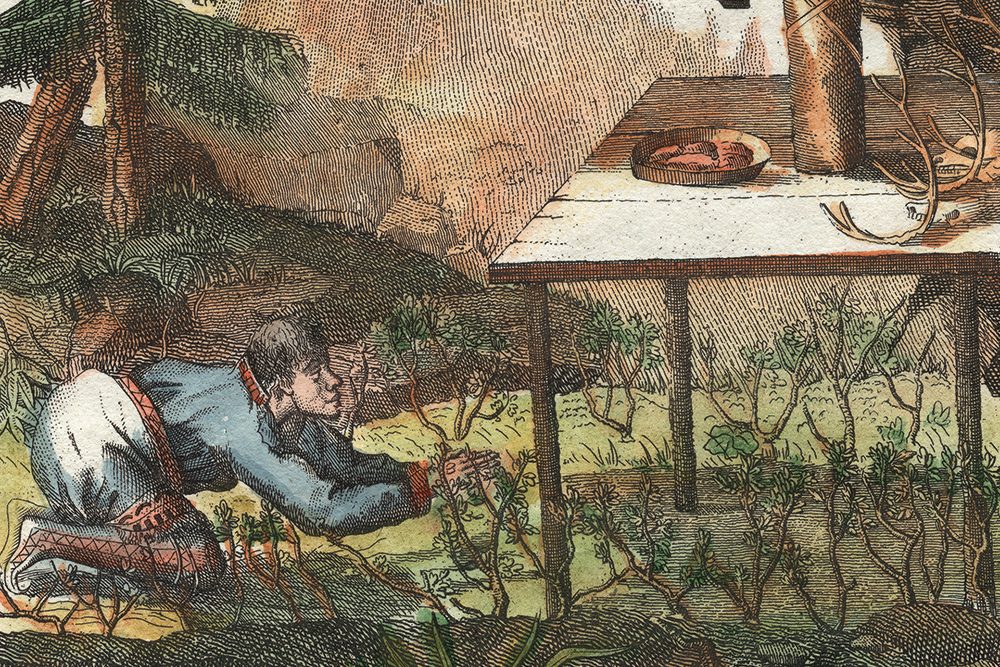Carys Davies grew up in Newport, south Wales but her novels have been set in nineteenth century Pennsylvania (West, 2018), contemporary Ooty in India (The Mission House, 2020) and now a small island off the north coast of Scotland in 1843. Her short stories have been set variously in the Australian outback and Siberia. She has said that when creating a fictional world, “I seem to require a certain kind of distance from my own life.”
On an island “between Shetland and Norway,” a man called Ivar lives in isolation, talking only to Pegi the horse, whom he calls “old cabbage and a silly, odd-looking person.” One day he finds a man naked and unconscious on the beach below the cliffs. Even after the man regains consciousness, he and Ivar do not share a common language, so communication between them is halting. The newcomer is John Ferguson, a church minister who has been sent to evict Ivar so that the land can be used solely by grazing sheep.
It is the year of the Great Disruption in the Scottish Church, when roughly one third of its ministers broke away to form the Free Church. Ferguson is one of these ministers who has had to leave his church and start again from scratch; his straitened circumstances made him vulnerable when it was proposed that he would be paid to get rid of Ivar. As Ivar nurses Ferguson, he is unaware of the visitor’s mission.
Meanwhile Ferguson’s wife, Mary, awaits his return with increasing anxiety. When he left, she behaved “like a mother who was sending her only son off into the navy and was determined not to disgrace herself by crying.” Ivar discovers John’s picture of Mary and becomes entranced by it. What he doesn’t realize is that this shy-looking woman is nothing of the sort, only hiding her rubber dentures by not smiling broadly.
As befits the landscape, this is sometimes an austere novel, but it is not without passion — from the pleasure Mary didn’t realize was contained within her own body to later echoes of Brokeback Mountain. It lacks some of the vivid color of The Mission House, but this is another epic in miniature. Davies manages to pack in more drama and nuance into 160 pages than other authors manage in novels twice that length.
This article was originally published in The Spectator’s UK magazines. Subscribe to the World edition here.






















Leave a Reply